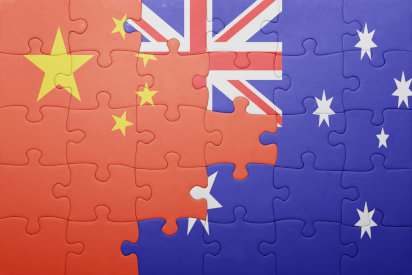Australia and China’s Policing Partnership: A Brief History
The Australian Federal Police (AFP) and Chinese law enforcement agencies are marking the 20th anniversary of their policing partnership.
The AFP formally established an office in Beijing in 1999, and was the first law enforcement agency to be invited into China.
AFP Deputy Commissioner Operations Neil Gaughan highlighted how the AFP has worked together with Chinese law enforcement across a range of transnational and organised serious crime types.
“In particular, since 2015, the work of Taskforce Blaze has stopped more than 22 tonnes of narcotics and precursor chemicals from finding their way into the Australian community,” said Deputy Commissioner Gaughan.
“Further, since 2017 we have seized more than $18 million worth of property on behalf of Chinese authorities related to Chinese people in Australia involved in illegal activities, primarily money laundering”.
Taskforce Blaze was formed in 2015, allowing Australia and China to exchange intelligence, conduct joint operations and make significant progress in dismantling international drug syndicates and prosecuting offenders. In December 2018, the AFP also announced the renewal of Taskforce Blaze until 2020.
Preceding this development, in September 2017 the AFP signed two new arrangements with the Chinese Ministry of Public Security relating to transnational crime impacting Australia and China.
In light of the 20th Anniversary of the Australia-China policing partnership, Director General Liao Jinrong of the International Cooperation Department of China’s Ministry of Public Security pointed out that China-Australia law enforcement cooperation has become an important part of bilateral relations of the two countries. He hopes that under the concept of “cooperation, innovation, rule of law and mutual benefit”, the two countries will cooperate effectively in a mutually beneficial relationship for the next 20 years.
The AFP’s increasingly global approach
Recent developments between Australia and China are reflective of the AFP’s increased focus on international engagement in fighting transnational organised crime and protecting Australia’s national security.
It is estimated that around 70% of Australia’s serious criminal targets live or have links overseas1 and as stated in the AFP’s International Engagement 2020 and Beyond report, the purpose of AFP International Engagement is “to take the fight against crime offshore, and to protect Australians and Australia’s national interests by working in partnership with state, territory and foreign law enforcement agencies to detect, deter, prevent and disrupt crime at its point of origin or transit.”
Australia is also a member of the Five Eyes – an alliance comprised of Australia, Canada, New Zealand, the United Kingdom and the United States, for the purpose of joint cooperation on matters of intelligence.
The AFP engages with law enforcement agencies from Five Eyes countries, as well as other international law enforcement and intelligence organisations such as INTERPOL, various other international law enforcement partners, global non-law enforcement such as the United Nations, as well as other foreign governments.
References
[1] Australian Crime Intelligence Commission (ACIC), The costs of serious and organised crime in Australia 2013–14, Canberra, 2015; Connery, David, Clare Murphy, Hayley Channer, A web of harms: serious and organised crime and its impact on Australian interests, ASPI, Canberra, 2015



